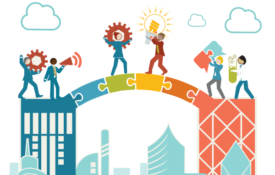-
Which Is Better, Active Learning or Lecture? It’s Not So Simple.
Students whose STEM courses are taught using active learning perform better than those taught with traditional lectures. That was the top-line finding of a widely cited 2014 meta-analysis, and it has been borne out in many other studies since. While research suggests that lecturing remains the dominant form of STEM instruction, the studies on active learning have bolstered high-profile calls for change that a growing number of instructors have taken to heart in recent years. A new paper suggests, however, that those studies are not as solid, nor their findings as clear-cut, as active-learning proponents would like.
-
What Most American Schools Do Wrong
Which country has the best education system? Since 2000, every three years, 15-year-olds in dozens of countries have taken the Program for International Student Assessment — a standardized test of math, reading and science skills. On the inaugural test, which focused on reading, the top country came as a big surprise: tiny Finland. Finnish students claimed victory again in 2003 (when the focus was on math) and 2006 (when it was on science), all while spending about the same time on homework per week as the typical teenager in Shanghai does in a single day. Just over a decade later, Europe had a new champion.
-
The Pandemic Disrupted Adolescent Brain Development
Before COVID, American teenagers’ psychological health was already in decline. The pandemic, with its sudden lockdowns, school closures and other jolts to normal life, made that downward slope steeper. The ensuing mental health crisis has given researchers a rare opportunity to gauge how an extraordinary event such as a public health catastrophe can physically affect the brains of teenagers. Preliminary results for some of these studies are starting to be reported—and they are sobering.
-
Yes, Messy People Can Learn to Be Tidier. Here’s How.
It may seem like some people are natural born neatniks and others are hardwired to create clutter. But experts say that’s just not true. Far from innate, these tendencies are largely acquired over time. “We are the products of our learning environments — you’re not born to be tidy or messy,” says Joseph R. Ferrari, a professor of psychology at DePaul University in Chicago who researches procrastination and clutter. “Tidiness can be learned or unlearned, just like messiness can be learned or unlearned.” So, if your messy spouse or kid thinks they simply weren’t born with the neatness gene — or if you think that about yourself — it might be time to reconsider. ...
-
How Sexist Is Science?
When it comes to women and science, portrayals in the elite science media agree: The academy is sexist. Journal and grant reviewers, tenure-track hiring committees, teaching evaluators, salary committees, and letter writers all favor men.
-

NIDCR “Building Bridges” Poster Award
This recognition is meant to forge connections between research in psychological science and dental, oral, and craniofacial health at the 2023 APS Annual Convention.

